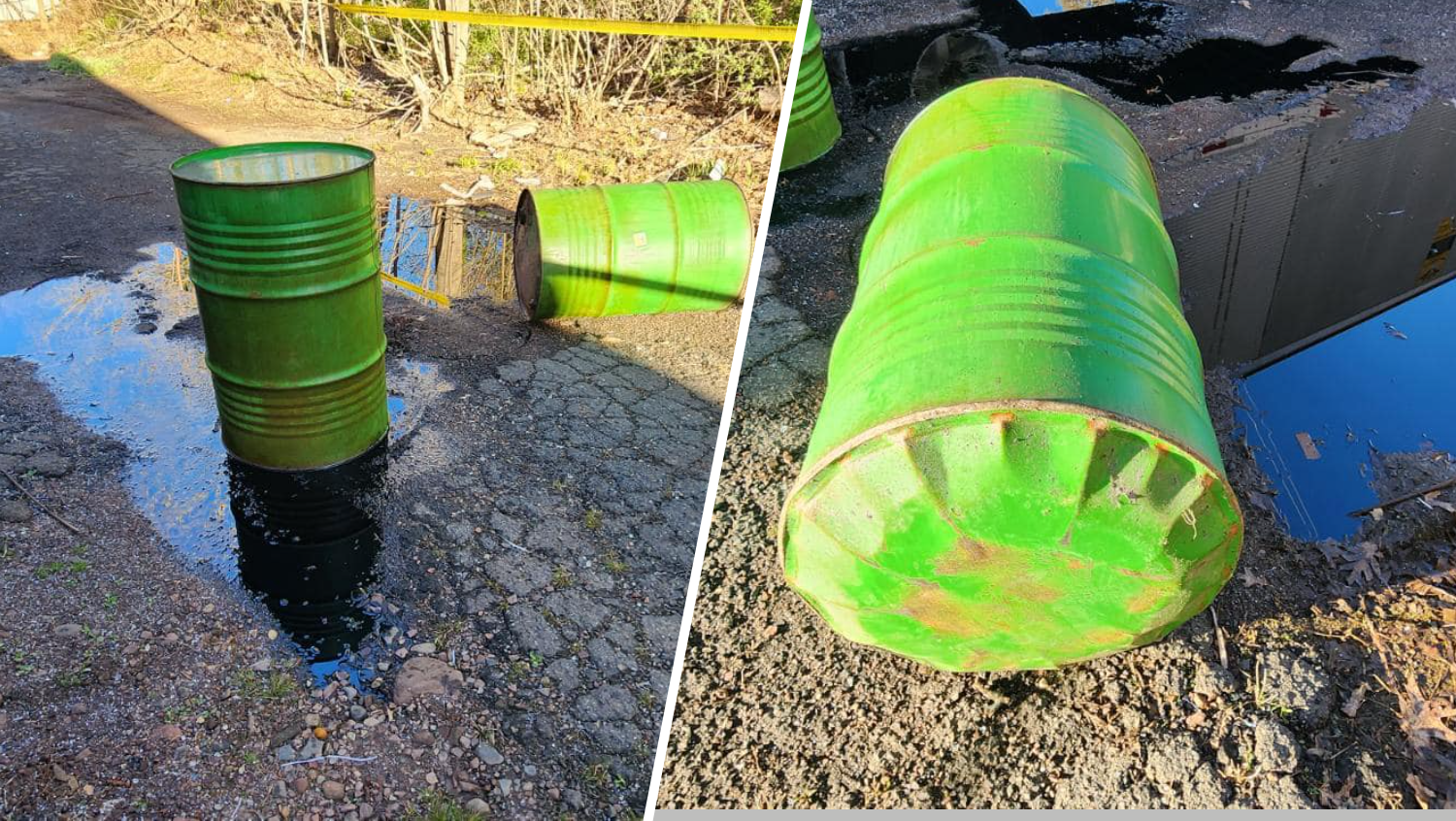If you noticed you’re paying more at the pump and your gas and electric bills are way up, then you're not alone.
According to AAA, the average gas price in Connecticut is $3.66 per gallon on February 21, 2022. That's up four cents in the last week, 17 cents in the last month, and 99 cents since last year.
AAA says it hasn’t been this expensive since 2014. Plus, it says crude oil prices remain over $90 a barrel.
This, coupled with heating costs is taking a toll on consumers right now.
Get Connecticut local news, weather forecasts and entertainment stories to your inbox. Sign up for NBC Connecticut newsletters.
“$4 a gallon. Hectic. Come on $3.97 out of this world. Come on!,” said Felton Rayfort, of New Britain.
It was easy to find folks like Rayfort frustrated filling up at the pumps.
“The gas prices are ridiculous,” said Matt Lallis, of Hartford.
Local
“So the gas pump does not discriminate based on how much money you make,” said Leah Hartman, University of New Haven’s department chair for accounting and finance.
She says while the economy is getting stronger, there’s a lot at play impacting prices, such as supply and demand, geopolitical factors, and fears like what’s brewing between Russia and Ukraine.
“So if Europe can't get oil from Russia, then where are they going to go? They're going to go up with our trading partners. Our biggest trading partner is Canada with respect to crude,” Hartman said.
And it’s not just gas for our cars, but prices for heating our homes are up too.
“Energy bills are outrageous,” said Arcenia Andrews, of Hartford.
“Well, we had not recovered from the economic repercussions of COVID-19, and then we had a really cold winter and rising energy prices, that kind of exacerbated everything that's going on, especially for these vulnerable households who are already struggling,” said Katrina Metzler, executive director of the National Energy and Utility Affordability Coalition.
As costs rise on these much-needed items, it’s taking a hit on people’s bottom lines.
“You buy gas just to get to work. You work to get gas. It’s ridiculous,” said Andrews.
Metzler recommends people in Connecticut take advantage of Operation Fuel, a program that isn’t available in all states.
Eversource also suggests Connecticut’s Energy Assistance Program or speaking to a company representative about one of their payment plans.
CNG, SCG, and UI encourage customers to take advantage of their assistance programs too.
AAA sent us these gas saving tips:
- Get your vehicle checked out. Perform regular car maintenance at the intervals recommended by the vehicle manufacturer in the owner's manual or as indicated by the in-car maintenance reminder system. Did you delay regular maintenance during the pandemic because you were driving less? Now is the time to get it looked at. Find a AAA Approved Auto Repair Facility here.
- Keep tires properly inflated. Under-inflated tires can decrease your gas mileage by approximately 3 percent. Not to mention, properly inflated tires are safer and last longer. Check pressure in all four tires every two weeks with an accurate, hand-held air pressure gauge.
- Know your octane. Do not purchase mid-grade or premium gas unless your owner’s manual specifically recommends it. According to AAA research, Americans waste more than $2.1 billion annually on premium gas in vehicles designed to run on regular fuel. AAA found no benefit to using premium gas instead of regular-grade fuel. At the time of the study, 70% of U.S. drivers owned a vehicle that required only regular gasoline.
- Avoid idling. Idling gets zero miles per gallon. Letting your vehicle idle for more than 10 seconds uses more gas than shutting it off and restarting. Don't start your car until you are ready to go. The engine actually warms up more quickly once the car is operating, and will stay warm after stopping. Avoid drive-up windows - park and go inside instead.
- Observe the speed limit. Gas mileage decreases rapidly at speeds above 60 mph. Each 5 mph you drive over 60 mph is like paying an additional $0.15 per gallon of gas. Using cruise control on the highway helps you maintain a constant speed and, in most cases, will save gas.
- Drive sensibly. Aggressive driving (speeding, rapid acceleration and braking) wastes gas. It can lower your gas mileage by 33 percent at highway speeds and by 5 percent around town.
- Consolidate trips. Combining errands into one trip saves you time and money. Several short trips taken from a cold start can use twice as much fuel as a longer multi-purpose trip covering the same distance when the engine is warm. With a little planning, you can avoid retracing your route and reduce the distance you travel as well. You'll not only save fuel, but also reduce wear and tear on your car.
- Minimize drag. Drag reduces fuel efficiency. Driving with the windows open, using roof- or rear-mounted racks and carrying heavy loads increase vehicle drag. A roof rack or carrier provides additional cargo space and may allow you to meet your needs in a smaller, more fuel efficient car. However, a loaded roof rack can decrease your fuel economy by 5 percent. Reduce aerodynamic drag and improve your fuel economy by using a removable rack and placing items inside the trunk whenever possible. Avoid carrying unnecessary items, especially heavy ones. An extra 100 pounds in the trunk reduces a typical car's fuel economy by 1-2 percent.



